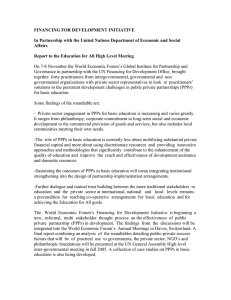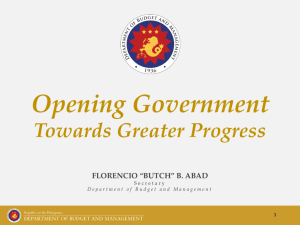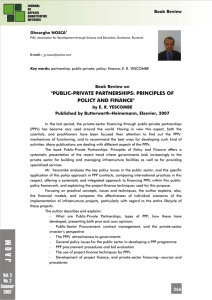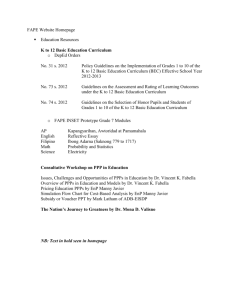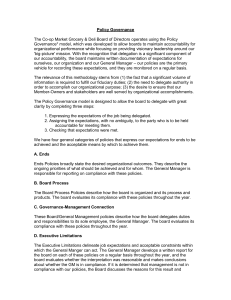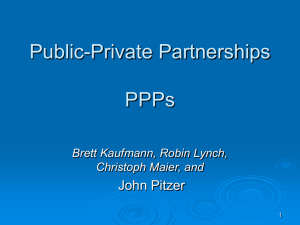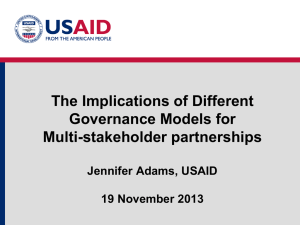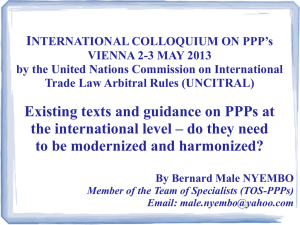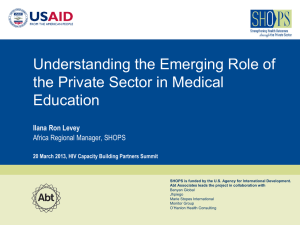Health as a public good, and global health governance
advertisement
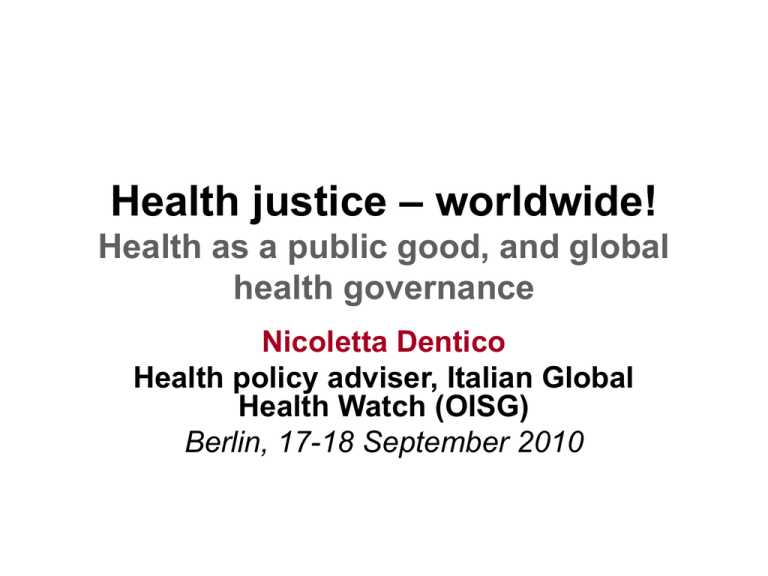
Health justice – worldwide! Health as a public good, and global health governance Nicoletta Dentico Health policy adviser, Italian Global Health Watch (OISG) Berlin, 17-18 September 2010 Pioneering paradigms for change in international development Different decades seem to usher in new champions of change in the health landscape: the developmental state approach in the ’60s and ‘70s, with lead from WHO and national plan free-market forces (WB and WTO) and nongovernmental organizations (NGOs) in the ’80s and 90s the new millennium and its hybrid variant: public-private partnerships (PPPs) and the rise of venture philantropy in response to market failures and state failures The seduction of today’s mobilizing concept: partnership Public and private partnerships (PPPs) are generally defined as initiatives where public interest actors, private sector companies and/or civil society organizations enter into an alliance to achieve a common purpose, pool core competencies, share risks, responsibilities, resources, costs and benefits (Rein et al., 2005) Pragmatism and institutional shift • PPPs are seen as logical response to the structural changes in the state-market-society relations occurred since the ‘80s [globalization, the rolling back of state responsibilities, the expanding of civil society, the massive growth of corporate actors, the emergence of new actors like NGOs, the strenghtening of so called technocratic policy making] • Governance shift from institutional arrangements based on formal structures to functional coalitions & multistakeholder initiatives, which leverage on complementarity skills to achieve greater impact • Principled pragmatism, rather than politics, is the key word – model for englithened global capitalism (Likovsky, 2005) • Voluntary approaches vs. norms and regulations A few headlines for an expanding agenda • Changing fortunes in the roaring nineties and the rise of PPPs; • Systemic inequity, growing inequalities and the reactivation of philanthropic sentiments (doubling of corporate foundations in the US from 1295 in 1987 to 2549 in 2003) strategic philantropy (Porter and Kramer 2003; Knudsen 2004) – health the privileged ground! • Declining trends in official development assistance; • Corporate globalisation and the legitimization of an economic system controlled by corporate elites; • Hegemonic strategy behind the upsurge of PPP discourse and practice – reaction to emergence of campaigns/ movements concerned with power of TNC: not only defence to societal pressure, also leadership!! The UN as the main paladin of the partnership ideology • The UN Global Compact (UN-BP) • Global health funds • The MiIllennium Development Goals MDG Declaration, section III, para 19 “ to develop strong partnerships with the private sector and with civil society organizations in pursuit of development and poverty eradication” The Babel Tower • Global health has ascended in the international political agenda, and it’s “the talk of the hall” • The raft of new organisations, istitutes, funds, alliances, centres and specific initiatives with a global health remit has radically transformed – geopolitically and culturally – the global health scene Any potential developmental downside? • Need to shift from “the more the marrier” approach to critical thinking as part of the health justice package • Issues of winners and losers; conflict of interests, controversial policy agendas; priority setting criteria; the politics of knowledge; the institutional reform; imbalances in power relations – the equal footing factor • increasing fragmentation; vertical approaches, accountability, issues of coordination and complementarity; the horizontal relationships and the potential for structural fragmentation • The role of WHO (cfr. the pharma agenda)? • Governments and their constitutional obligations? Then? Attention needs to be given to HOW the growing patchwork of alliances and initiatives in health could be turned into a system of global health governance built on existing organisations, common values and agreed regimens, to provide global health public goods, including health research, the generation and dissemination of knowledge, norms and regulatory standards. While the determinants of health and the measures to address health problems have become subject to transnational forces, intergovernmental collaboration is becoming more and more essential Meaning that…. • The laissez-faire approach to this model, with its questions of governance and accountability, needs to turn to a more responsible attitude by those who care for the right to health – more policy research • While it is not possible to give a sweeping value judgement on PPPs, it is urgent to select and promote only those partnerships that are congruent with both government priorities and UN goals, and which enhance local ownership and decentralization; We need to transform the discourse on collaborations • A bolder leadership from WHO – back to the future! • Sustainable financing mechanisms for countries to properly respond to health needs – the wealth poverty line discourse! • Urgently create a framework for health partnerships governance and accountability • Resume and enhence a post 2008 corporate accountability convention (the WSDS in 2003)
